Current Section: model
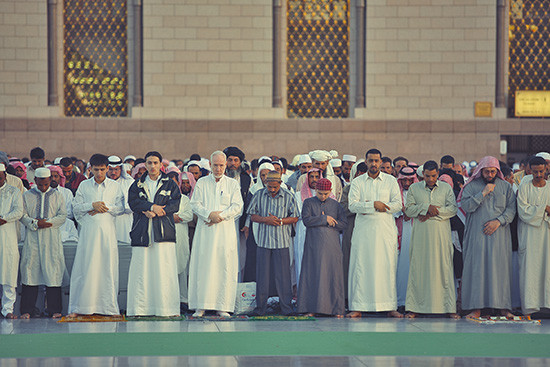
Lesson The Recommended Prayers
During each and every day and night, a Muslim must perform only five prayers. However, the legislation urges Muslims to pray the supererogatory prayers that can bring about Allah’s love for the servant and covers any deficiencies in the obligatory prayers. It was reported by Abu Hurairah (may Allah be pleased with him) that the Prophet ﷺ said: «The first thing about which the people will be called to account out of their actions on the Day of Judgment is prayer. Our Lord, the Exalted, will say to the angels - though He knows better: Look into the prayer of My servant and see whether he has offered it in a complete or incomplete way. If it is complete that will be recorded as complete. If it is defective, He will say: See if My servant offered some optional prayers. If there are optional prayers to his credit, He will say: Complete the obligatory prayer with the optional prayer for My servant. Then all the actions will be judged similarly.» (Sunan Abi, Dawood 864).
They are named such because they accompany obligatory prayers, and the Muslim is consistent with them.
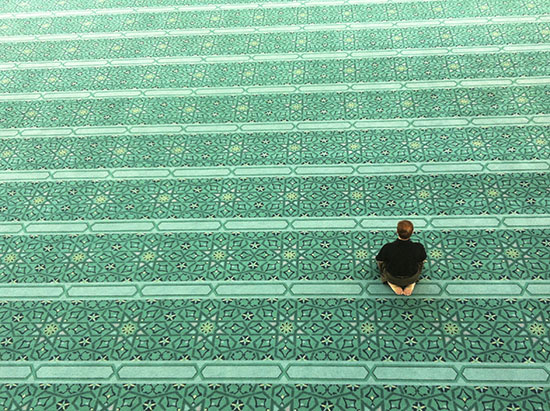
The Prophet ﷺ said: «He who observes twelve voluntary raka'at, a house will be built for him in Paradise.» (Muslim, 728)
The supererogatory prayers.
It is called Witr - meaning odd number in Arabic – because it has an odd number of raka’at (unit of prayer). It is one of the best of all supererogatory prayers. The Prophet ﷺ said: «Followers of the Quran, perform the Witr prayer.» (Al-Tirmidhi, 453, Ibn Majah, 1170)
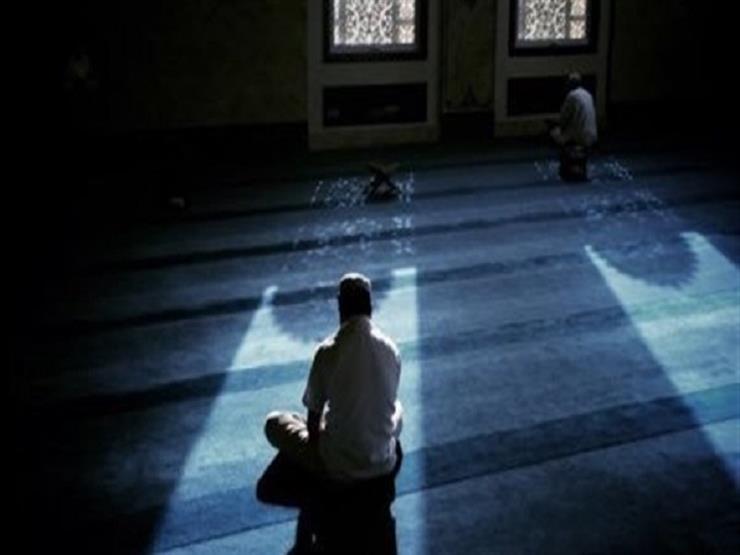
The best time to offer the Witr prayer is late at night, after the Isha prayer, and before the Fajr prayer.
Number of Raka'at for Witr Prayer
Its number of Raka’at is unlimited, the minimum is one, but it is better to offer three. A Muslim may offer more if he wishes. The Prophet ﷺ used to perform eleven Raka’at.
The least the Witr prayer should be is three rak’at, so the Muslim prays two rak’ahs and makes the tasleem, then he prays one rak’ah and gives the tasleem. And it is prescribed for him in the last rak’ah - before or after bowing - to raise his hands towards his chest and supplicate with the supplication of Qunoot.

It is a prayer that Allah has legislated in cases of drought, causing people harm due to the lack of rain. Therefore, it is recommended to perform it in open areas if possible, and permissible to perform it in the mosque.
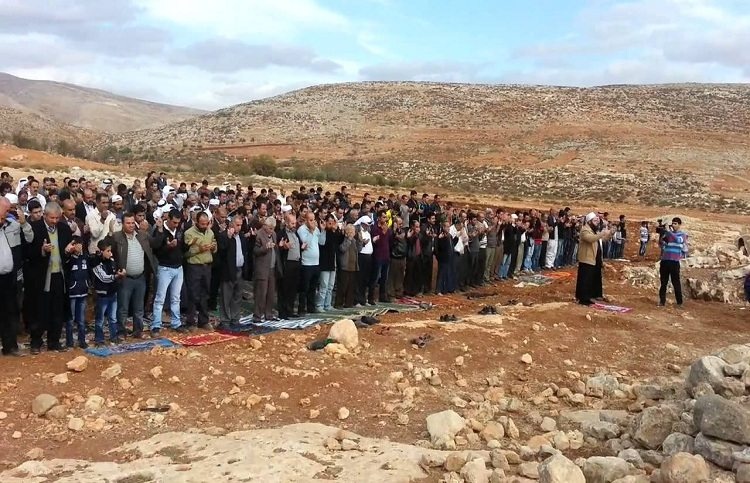
It is legislated that those performing the payer will go out in humility and lowering themselves before Allah as they repent and having done acts that can bring about the mercy of Allah, such as seeking forgiveness, atoning rights, charitable donations, and showing people kindness.
Description of the Rain Prayer
The rain prayer - similar to Eid prayers - consists of two Raka'at in which the imam recites the Quran aloud. At the start of the first Raka'ah, he says, "Allahu akbar" and repeats the same utterance six more times before reciting the Quran. For the second Raka'ah, he repeats the same word five times in addition to the takbeer he has recited while standing up from prostration. He then delivers two sermons in which he frequently asks for forgiveness and persists in supplicating to Allah.
It is a prayer read by a Muslim who needs guidance from Allah when facing a decision in his life and does not know whether it is suitable for him.
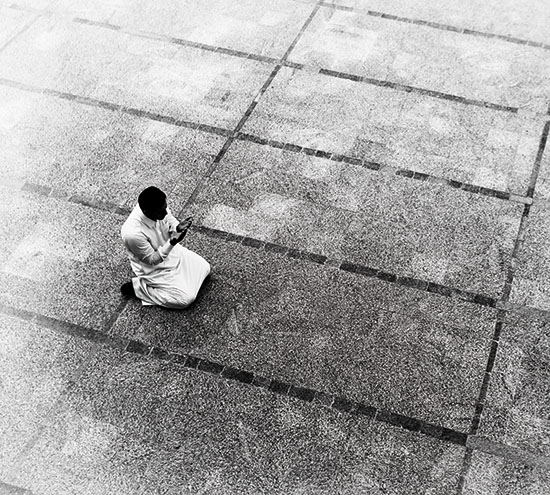
Its Legitimacy
If the Muslim is facing a decision in his life and does not know whether it is good for him or not. It is recommended that he performs two Raka'at and then recites the supplication that the Prophet ﷺ taught his companions: «O Allah, I seek the counsel of Your Knowledge, and I seek the help of Your Omnipotence, and I beseech You for Your Magnificent Grace. Surely, You are Capable, and I am not. You know, and I know not, and You are the Knower of the unseen. O Allah, if You know that this matter [then mention the thing to be decided] is good for me in my religion and in my life and for my welfare in the life to come, - [or say: in this life and the afterlife] - then ordain it for me and make it easy for me, then bless me in it. And if You know that this matter is bad for me in my religion and in my life and for my welfare in the life to come, - [or say: in this life and the afterlife] - then distance it from me, and distance me from it, and ordain for me what is good wherever it may be, and help me to be content with it." Whoever seeks the counsel of the Creator will not regret it, and whoever seeks the advice of the believers will feel confident about his decisions, for Allah has said in the Qur'an: "And consult them in the affair. Then when you have taken a decision, put your trust in Allah.» (Al-Bukhari, 1162)
Among the supererogatory prayers, this prayer has been mentioned with great reward as part of its virtue. It consists of at least two Raka'ah. The time for the prayer begins when the sun has risen to the height of a spear, until just before the sun passes its zenith (when the time for dhuhr prayer begins).

An eclipse is an unusual astronomic event in which the light of the sun and the moon completely or partially disappear. It is a sign from Allah indicating His power and kingdom. It alerts and awakens the human being from his recklessness so that he fears Allah’s punishment and hopes for His reward.
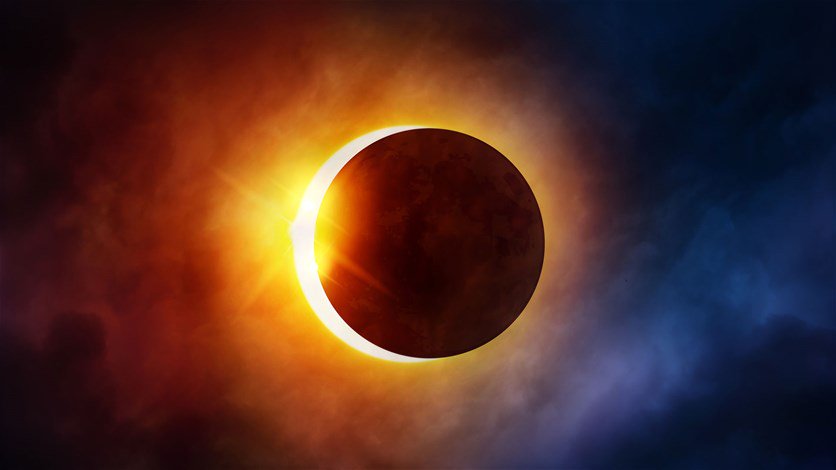
The Prophet ﷺ said: «The sun and the moon are two signs amongst the signs of Allah. They do not eclipse because of someone's death or life. So when you see them, stand and pray.» (Al-Bukhari, 1041)
Description of the Eclipse Prayer
The eclipse prayer consists of two raka'at, however, it is legislated to repeat the bowing, hence after assuming a standing position after the first raka'ah, the person praying repeats Surah Al-Fatiha and as much of the Quran as he can, then he performs a full Raka'ah as he bows down, stands up again, prostrates, then adopts a sitting position. Finally, when he stands up again after the prostration, he repeats the same for the second raka'ah.



